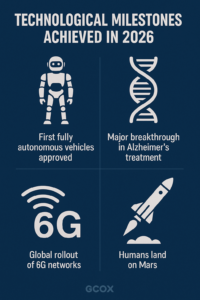
“Quantum computing is on the verge of a remarkable breakthrough, with industry giants IBM and Google leading the charge. This revolutionary technology holds the potential to transform the way we approach complex computational problems, ushering in a new era of unprecedented processing power and problem-solving capabilities.
At its core, quantum computing harnesses the principles of quantum mechanics, leveraging the unique properties of subatomic particles to perform calculations in ways that classical computers simply cannot. Unlike traditional binary systems, quantum computers operate using qubits, which can exist in multiple states simultaneously, enabling them to explore vast solution spaces in parallel.
| Key Difference | Classical Computers | Quantum Computers |
|---|---|---|
| Fundamental Units | Bits (0 or 1) | Qubits (0, 1, or Superposition) |
| Computation Approach | Sequential, Deterministic | Parallel, Probabilistic |
| Problem-Solving Capacity | Limited to Classical Algorithms | Exponentially Faster for Certain Problems |
This quantum advantage has the potential to revolutionize fields such as cryptography, drug discovery, optimization problems, and even climate modeling. By harnessing the power of quantum mechanics, researchers and developers are unlocking new frontiers in computing that were previously inaccessible.
What is Quantum Computing?
Quantum computing is a rapidly evolving field that harnesses the principles of quantum mechanics to perform computations in a fundamentally different way than classical computers. Unlike traditional binary systems that use bits represented as 0s and 1s, quantum computers utilize quantum bits, or qubits, which can exist in a superposition of both 0 and 1 simultaneously. This quantum superposition allows quantum computers to explore multiple possible solutions to a problem in parallel, potentially leading to exponential speedups for certain types of calculations.
The core of quantum computing lies in the behavior of subatomic particles, such as electrons and photons, which exhibit quantum mechanical properties like entanglement and quantum tunneling. By manipulating and controlling these quantum phenomena, researchers are able to create and maintain qubits, the building blocks of quantum computers. The ability to leverage the unique properties of quantum mechanics, such as superposition and entanglement, is what sets quantum computing apart from its classical counterparts and opens up new avenues for problem-solving.
The Fundamental Principles of Quantum Mechanics
The foundations of quantum computing are rooted in the principles of quantum mechanics, a field of physics that describes the behavior of matter and energy at the atomic and subatomic levels. Some of the key principles that underpin quantum computing include:
Superposition: In classical computing, a bit can exist in either a 0 or 1 state. In quantum computing, a qubit can exist in a superposition of both 0 and 1 states simultaneously, allowing it to explore multiple possibilities in parallel.
Entanglement: Quantum particles can become “”entangled,”” meaning their states are inextricably linked, even when separated by large distances. This phenomenon enables quantum computers to perform certain calculations exponentially faster than classical computers.
Quantum Tunneling: Quantum particles can sometimes “”tunnel”” through barriers that classical particles would be unable to overcome, enabling new types of computational processes.
Understanding these fundamental principles is crucial for comprehending the unique capabilities and challenges of quantum computing, as they form the basis for the quantum advantage that this technology seeks to harness.
How Quantum Computers Differ from Classical Computers
The key distinction between quantum computers and classical computers lies in the way they process information and solve problems. While classical computers operate using binary bits that can only exist in a 0 or 1 state, quantum computers utilize qubits that can exist in a superposition of both 0 and 1 simultaneously.
This quantum superposition allows quantum computers to explore multiple possible solutions to a problem in parallel, rather than the sequential, deterministic approach of classical computers. Quantum computers can also leverage the principles of quantum entanglement and quantum tunneling to perform certain calculations exponentially faster than their classical counterparts.
Some of the primary differences between quantum and classical computers include:
– Fundamental Units: Classical computers use bits (0 or 1), while quantum computers use qubits (0, 1, or Superposition)
– Computation Approach: Classical computers operate sequentially and deterministically, while quantum computers function in parallel and probabilistically
– Problem-Solving Capacity: Classical computers are limited to classical algorithms, while quantum computers can solve certain problems exponentially faster
These fundamental differences in architecture and computational approach are what give quantum computers the potential to tackle complex problems that are intractable for classical computers, paving the way for breakthroughs in fields such as cryptography, drug discovery, and optimization.
Key Applications and Use Cases for Quantum Computing
Quantum computing has the potential to revolutionize a wide range of industries and applications, leveraging its unique capabilities to solve problems that are beyond the reach of classical computers. Some of the key areas where quantum computing is expected to have a significant impact include:
Cryptography and Cybersecurity: Quantum computers could potentially break many of the encryption algorithms used in modern-day cybersecurity, making it crucial for the development of quantum-resistant cryptographic methods.
Optimization and Logistics: Quantum computers excel at solving optimization problems, such as route planning, scheduling, and resource allocation, which are essential for industries like transportation, logistics, and supply chain management.
Quantum Simulations and Materials Science: Quantum computers can simulate the behavior of complex quantum systems, enabling advancements in fields like chemistry, materials science, and drug discovery, where the accurate modeling of molecular interactions is crucial.
Financial Modeling and Risk Analysis: Quantum computing can provide significant advantages in financial modeling, portfolio optimization, and risk analysis, allowing for more accurate and efficient decision-making in the financial sector.
As quantum computing continues to evolve and become more accessible, these and other applications will likely become increasingly important, driving innovation and transformation across a wide range of industries.
Advantages and Potential Benefits of This Emerging Technology
The emergence of quantum computing holds immense promise, offering a range of advantages and potential benefits that could revolutionize various industries and fields of study. Some of the key advantages of this technology include:
Exponential Speedups: Quantum computers have the ability to perform certain computations exponentially faster than classical computers, enabling breakthroughs in areas such as cryptography, optimization, and simulations.
Improved Accuracy and Precision: Quantum computers can model and simulate complex quantum systems with greater accuracy, leading to advancements in fields like materials science, chemistry, and drug discovery.
Increased Efficiency and Optimization: Quantum computing can provide significant advantages in optimization problems, such as logistics, scheduling, and resource allocation, leading to more efficient and cost-effective solutions.
Advancements in Cryptography: While the power of quantum computers could potentially break many of the encryption algorithms used today, it also paves the way for the development of quantum-resistant cryptographic methods, enhancing the overall security of digital systems.
As the field of quantum computing continues to evolve and mature, these advantages are expected to drive a wide range of breakthroughs and transformations across various industries, from healthcare and finance to transportation and energy.
Challenges and Limitations in Realizing Quantum Supremacy
Despite the immense potential of quantum computing, there are significant challenges and limitations that must be overcome before this technology can achieve true “”quantum supremacy”” – the point at which quantum computers can outperform classical computers on a wide range of tasks.
Qubit Stability and Decoherence: Maintaining the delicate state of qubits is a major challenge, as they are highly susceptible to interference from the external environment, leading to a phenomenon known as decoherence, which can disrupt the computations.
Scalability and Hardware Limitations: Scaling up the number of stable and reliable qubits in a quantum computer is a significant engineering challenge, as the complexity and fragility of these systems increases exponentially with the number of qubits.
Quantum Error Correction: Developing effective error correction and fault-tolerance mechanisms is crucial for ensuring the reliability and accuracy of quantum computations, as quantum systems are inherently more prone to errors than classical computers.
Algorithm Development: While quantum computers have the potential to solve certain problems exponentially faster than classical computers, developing practical quantum algorithms that can take advantage of this power is an ongoing challenge.
Overcoming these challenges will require continued advancements in quantum hardware, software, and theory, as well as close collaboration between researchers, engineers, and industry leaders. As progress is made in these areas, the path towards realizing the full potential of quantum computing will become clearer.
Milestones and Breakthroughs from IBM and Google
The race to achieve quantum supremacy has been spearheaded by industry giants like IBM and Google, who have made significant strides in advancing the field of quantum computing.
IBM’s Quantum Roadmap: IBM has been at the forefront of quantum computing research and development, with its IBM Quantum Experience platform allowing researchers and developers to access and experiment with their quantum computers. The company has set ambitious goals, including the development of a 1,000-qubit quantum computer by 2023.
Google’s Quantum Supremacy Claim: In 2019, Google’s Sycamore quantum processor was able to perform a specific calculation in just 200 seconds, a task that would have taken the world’s fastest classical supercomputer approximately 10,000 years to complete, marking a significant milestone in the quest for quantum supremacy.
Continued Advancements and Collaborations: Both IBM and Google have continued to push the boundaries of quantum computing, with ongoing research, development, and partnerships with academic institutions and other industry players. These efforts are paving the way for further breakthroughs and the eventual commercialization of quantum computing technologies.
As these tech giants and others continue to make progress, the future of quantum computing looks increasingly promising, with the potential to transform a wide range of industries and unlock new frontiers in scientific discovery.
Roadmap for the Future Development of Quantum Computers
The development of quantum computers is a complex and multifaceted endeavor, with researchers and industry leaders working towards a clear roadmap for the future. While significant progress has been made, there are still several key milestones and challenges that need to be addressed before quantum computing can become a widely adopted and commercially viable technology.
Qubit Scaling and Stability: One of the primary goals is to continue scaling the number of reliable and stable qubits in quantum computers, as this is a crucial factor in achieving quantum supremacy and unlocking the full potential of this technology.
Quantum Error Correction and Fault Tolerance: Developing effective error correction and fault-tolerance mechanisms will be essential for ensuring the reliability and accuracy of quantum computations, as quantum systems are inherently more prone to errors than classical computers.
Quantum Software and Algorithm Development: In parallel with hardware advancements, the research and development of practical quantum algorithms that can take advantage of the unique capabilities of quantum computers will be crucial for driving real-world applications and use cases.
Commercialization and Accessibility: As the technology matures, the focus will shift towards making quantum computing more accessible and commercially viable, with the aim of transitioning it from a niche research field to a widely adopted and impactful technology.
By addressing these key milestones and challenges, the roadmap for the future development of quantum computers is expected to lead to a transformative shift in the way we approach complex computational problems, with far-reaching implications across various industries and scientific disciplines.
Implications for Cybersecurity and Cryptography
The emergence of quantum computing has significant implications for the field of cybersecurity and cryptography. While quantum computers hold the potential to revolutionize various industries, they also pose a threat to the encryption algorithms that currently underpin the security of digital systems.
Quantum Cryptanalysis: Many of the encryption algorithms used today, such as RSA and Elliptic Curve Cryptography, are based on the difficulty of solving certain mathematical problems. However, quantum computers have the ability to solve these problems exponentially faster, potentially rendering these encryption methods obsolete.
Quantum-Resistant Cryptography: In response to this threat, researchers and cryptographers are actively developing quantum-resistant encryption algorithms that can withstand the computational power of quantum computers. These new cryptographic methods, such as lattice-based cryptography and post-quantum cryptography, aim to ensure the continued security of digital communications and transactions in the quantum computing era.
Quantum Key Distribution: Another approach to ensuring quantum-safe communications is the use of quantum key distribution (QKD) protocols, which leverage the principles of quantum mechanics to establish secure encryption keys between two parties. QKD is considered one of the most promising solutions for protecting against quantum-based attacks.
As the development of quantum computing continues, the need for robust and quantum-resistant cybersecurity measures will become increasingly critical. Collaboration between the quantum computing and cybersecurity communities will be essential in addressing these challenges and ensuring the continued security of digital systems in the face of this emerging technological revolution.
Ethical Considerations and Social Impact
The rise of quantum computing brings with it a range of ethical considerations and potential social impacts that must be carefully examined and addressed.
Privacy and Data Security: The ability of quantum computers to break many of the encryption algorithms used today raises concerns about the privacy and security of sensitive data, including personal information, financial records, and national security secrets.
Potential for Misuse: Like any powerful technology, quantum computing could potentially be misused for malicious purposes, such as cybercrime, surveillance, or the development of advanced weapons systems. Ensuring the responsible development and deployment of this technology is crucial.
Societal Disruption and Inequality: The transformative potential of quantum computing could lead to significant disruptions in various industries, potentially causing job displacement and exacerbating social and economic inequalities if the benefits of this technology are not equitably distributed.
Environmental Impact: The energy-intensive nature of quantum computing raises concerns about its environmental impact, particularly in terms of its carbon footprint and the sustainability of the resources required to power and cool these systems.
As the field of quantum computing continues to evolve, it will be essential for policymakers, researchers, and industry leaders to proactively address these ethical considerations and work towards ensuring that the development and application of this technology align with the principles of responsible innovation and social good.
Quantum Computing Versus Classical Computing Performance
The performance advantages of quantum computers over classical computers are not universal, but rather depend on the specific problem being solved. While quantum computers have the potential to outperform classical computers exponentially for certain types of problems, there are also many tasks where classical computers may still be more efficient.
Quantum Advantage: Quantum computers excel at problems that involve the exploration of large solution spaces, such as factoring large numbers, simulating complex quantum systems, and solving optimization problems. For these types of problems, quantum computers can provide significant speedups compared to classical computers.
Classical Computing Strengths: Classical computers, on the other hand, remain highly efficient for tasks that involve simple, linear computations, data processing, and general-purpose computing. For these types of problems, classical computers may still outperform quantum computers in terms of speed, efficiency, and cost-effectiveness.
Hybrid Approaches: To maximize the performance of computing systems, researchers are exploring hybrid approaches that combine the strengths of both quantum and classical computers. In these hybrid systems, certain parts of a problem are solved using quantum computers, while other parts are handled by classical computers, resulting in an optimal overall solution.
As the field of quantum computing continues to evolve, the performance landscape will likely become more nuanced, with both quantum and classical computers playing complementary roles in addressing the diverse computational needs of various industries and applications.
Commercialization and Adoption Outlook
The commercialization and widespread adoption of quantum computing is a complex and multifaceted challenge that will require significant investments, technological advancements, and collaboration across various stakeholders.
Current State of Commercialization: While quantum computing is still largely in the research and development stage, tech giants like IBM, Google, and Microsoft have made significant strides in making this technology more accessible. Several companies and research institutions have already begun offering cloud-based quantum computing services, allowing developers and researchers to experiment with and explore the potential of this emerging technology.
Barriers to Adoption: However, several barriers still need to be overcome before quantum computing can become a commercially viable and widely adopted technology. These include the high cost of quantum hardware, the complexity of programming and operating these systems, the need for specialized expertise, and the ongoing challenges in scaling up the number of reliable and stable qubits.
Roadmap to Commercialization: To accelerate the commercialization and adoption of quantum computing,”




